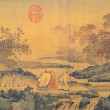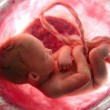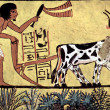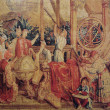The Stillbirth of Science in China
by Dr. Stacy Trasancos
Filed under Christianity and Science

NOTE: Today we're continuing our weekly series of essays by Dr. Stacy Trasancos on the "stillbirths" of science. They're based on Fr. Stanley L. Jaki's research into the theological history of science in the ancient cultures of Egypt, China, India, Babylon, Greece, and Arabia. See past articles here. There is so much written about China’s rich and illustrious past that no case could ever be made—from the Shang Dynasty (1523–1028 B.C.) to the Ch’ing Dynasty (A.D. 1644–1912)—that... Read More
Answering Three Common Arguments for Abortion
by Trent Horn
Filed under Morality

NOTE: The following post, the second of two from Trent Horn, is excerpted from a new book he will publish in September defending the pro-life position. Read the first post here. In Part 1 of this short series, we saw that there isn’t a way to consistently define what a “person” is that includes newborns but excludes fetuses and non-human animals. In this post I will examine “body-rights” arguments for abortion that take advantage of the difference between newborns and... Read More
Can Atheists Defend Abortion Without Defending Infanticide?
by Trent Horn
Filed under Morality

NOTE: The following post, the first of two from Trent Horn, is excerpted from a new book he will publish in September defending the pro-life position. Let's begin by noting that while not all atheists are pro-choice, a sizable majority are. In fact, a recent Gallup poll revealed that those with no religious attachment are the most likely demographic to identify as pro-choice. With that in mind, let me present what I think is the strongest argument for the moral and legal permissibility... Read More
The Stillbirth of Science in Ancient Egypt
by Dr. Stacy Trasancos
Filed under Christianity and Science

NOTE: For the next six Fridays, Strange Notions will present a series of essays by Dr. Stacy Trasancos on the "stillbirths" of science. They're based on Fr. Stanley L. Jaki's research into the theological history of science in the ancient cultures of Egypt, China, India, Babylon, Greece, and Arabia. The first stillbirth Fr. Stanley L. Jaki discussed in the Savior of Science is the stillbirth of science in Egypt, “an Egypt to be buried in the sand.” In ancient Egypt (from about... Read More
How Catholic Missionaries Brought Science to China
by Andrew Kassebaum
Filed under Christianity and Science

In late December 1668, in a contest held at the Chinese Bureau of Astronomy, the Jesuit Ferdinand Verbiest (1623-1688) correctly predicted the length of a shadow cast by a vertical rod. The Kangxi Emperor was impressed. But he challenged Verbiest to two additional tests: the prediction of the exact position of the sun and planets on a given day and the timing of an approaching lunar eclipse. Verbiest successfully completed the final two tests, and, in the process, showed that the Chinese... Read More
Why Everything Must Have a Reason for Its Existence
by Steven Dillon
Filed under The Existence of God

NOTE: Today we feature a guest post from Steven Dillon, one of our regular commenters. When Strange Notions launched in May 2013, Steven didn't believe in the monotheistic conception God. Although he still rejects God as Trinity, he has since come to believe in a single, simple, perfect, immutable God. Today he shares one reason that swayed him closer to monotheism. I’ve spent a lot of time arguing against theistic conclusions here, but I feel it’s time to change gears. There... Read More
Why God Provides Room to Build a Better World
by Fr. Robert Spitzer
Filed under The Problem of Evil

NOTE: This is the last in our four-part series by philosopher Fr. Robert Spitzer addressing the question, "Why Would God Allow Suffering Caused by Nature?" Instead of focusing on the existence of moral evil, or suffering caused by the free choice of humans, he examines why an apparently good God would create an imperfect world replete with natural disasters, physical disabilities, and unavoidable heartache. Find the other parts of the series here. We now move from an individual... Read More
Molecules and Mourning

Materialism has always had a difficult time dealing with death, because it has to claim that death is not a big deal. If there is nothing more to life than the matter of the body, once the body dies there is nothing left to “experience” death. The ancient atomists were explicit in this claim, with Epicurus stating: "Death, therefore, the most awful of evils, is nothing to us, seeing that, when we are, death is not come, and, when death is come, we are not." While it is debatable how... Read More
Demons, Playing Cards, and Telescopes
by Joe Heschmeyer
Filed under Atheism, Belief

In 1949, Jerome S. Bruner and Leo Postman asked a group of 28 students at Harvard and Radcliffe to perform a simple task: identify playing cards. There were just two catches. First, these cards were shown very quickly: for 10 milliseconds at first, but increasing up to 1000 milliseconds if they struggled to identify the card. Second, the researchers were using a deck of four ordinary playing cards and six “trick cards” in which the card's color and suit were incongruous (red spades,... Read More
How an Imperfect World Produces Unconditional Love
by Fr. Robert Spitzer
Filed under The Problem of Evil

NOTE: Today we continue our four-part series by philosopher Fr. Robert Spitzer addressing the question, "Why Would God Allow Suffering Caused by Nature?" Instead of focusing on the existence of moral evil, or suffering caused by the free choice of humans, he examines why an apparently good God would create an imperfect world replete with natural disasters, physical disabilities, and unavoidable heartache. In philosophy, agape is one of the highest forms of love. For our... Read More






